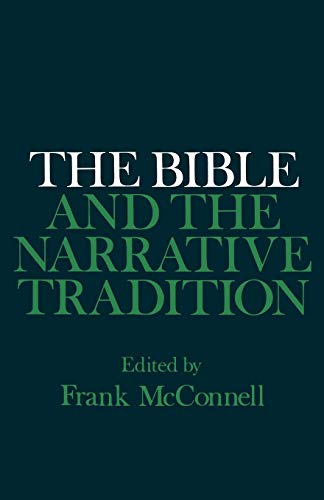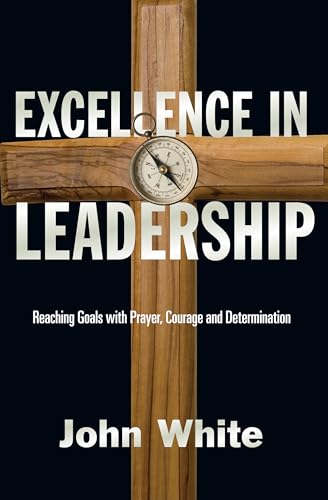Volume 14 - Issue 2
The good news of the gospels
By David WenhamWhat are scholars saying about the gospels these days? If you want to know the answer to that question, read on in this Themelios! We are privileged to have expert survey articles on the four gospels from four internationally known scholars.
Even given an expert guide or team of guides, gospel studies can seem very confusing, and the student faced with the bewildering variety of scholarly opinions and ideas may well be tempted to despair—either to despair of having any assurance about the gospels and about Jesus whom they portray, or despair of scholars and scholarship and so to ignore scholarly ideas and approaches when reading the gospels. Such despair is understandable, but not necessary nor desirable.
In particular it is not necessary or desirable to despair of knowing about Jesus through the gospels. The common-sense reading of the gospels as historical accounts of a historical person is one that scholars often scorn or simply ignore, but it is in fact a much sounder approach than the subtle semi-allegorical method of interpretation which characterizes much modern scholarship. Scholars regularly bypass the obvious surface meaning of the gospel texts and look for other more subtle levels of meaning—e.g. for what the text says about the church or the theology of the evangelist. The texts do indeed give us clues about the evangelists’ ideas and situations—and there is value in noting these—but the main point of the gospels is to tell about Jesus of Nazareth. It is no wonder that scholarship which is blind to the primary purpose of the gospels and which concentrates on things that are secondary (and inevitably difficult to establish) is often very speculative, tending to confuse rather than clarify.
The fashionable ‘non-historical’ approach to the gospels is in part at least the legacy of the rationalism and scepticism that have been so strong an influence in Western biblical scholarship for the last two centuries: scholars have felt unable to believe the miracles of the gospels and so unable to take the gospels at face value. But the fashion deserves to be challenged. The gospels have every right to be considered as what they purport to be—historical accounts of Jesus’ life; not, of course, accounts written by unbiased, trained historians—no historian, ancient or modern, is unbiased—but still accounts intended to inform us about historical events and written by intelligent, honest men.
It may be helpful briefly to summarize some of the reasons for viewing the gospels as historical and historically reliable.
(1) They claim to be historical themselves. This claim is explicit most notably in Luke’s prologue, where he speaks of ‘eyewitnesses’ and having ‘followed everything accurately’ and of writing ‘so that you may know the truth’ (Lk. 1:1–4; note also the emphasis on eyewitnesses in Acts 1:21, 22, and Jn. 19:35; 21:24). But the claim is implied in all the gospels; they are, prima facie, accounts of the life of Jesus in first-century Palestine, and the onus of proof is on those who deny that this is what they are intended to be. It is extraordinary how some scholars can blandly say that ‘there is no historical evidence’ for this or that event described in the gospels, when the gospel narrative itself is such evidence (whether reliable or not).
(2) The gospels’ claim to be writing historically about events in first-century Palestine is supported by a wealth of historical and archaeological evidence. Whether it is the Jewish historian Josephus and his descriptions of people like Herod the Great and Pontius Pilate, or whether it is the Dead Sea Scrolls and the insight that they give into the Judaism of Jesus’ day, or whether it is archaeological finds (of a Galilean fishing boat, or of the Galilean city of Bethsaida), there is a growing volume of evidence which corroborates the gospels’ picture of Jesus’ life and ministry in first-century Palestine (not directly by referring to Jesus, but indirectly by the ways it fits in with the gospel story). For example, Jesus’ teaching about the kingdom of God and his references to himself as ‘son of man’ make excellent sense in the context of first-century Palestine, but not in the context of the later Greek-speaking church. Despite the contrary assertions of critics, the gospels do not very strongly reflect the concerns and interests of the early church; but they are remarkably faithful accounts of Jesus’ ministry—for example, recording honestly the failures and weaknesses of the disciples.
(3) The very fact that there are four different gospels, which are to some extent at least independent of each other but which give a very similar picture of Jesus and his ministry, is an indication of their historical reliability. It may be that Matthew and Luke knew Mark (as most recent scholars have supposed) and perhaps that John knew some or all of the synoptic gospels, but each of the evangelists had his own sources of information, and the same general picture of Jesus emerges in what scholars have called ‘Markan’, ‘Q’, ‘M’, ‘L’ and Johannine tradition. Furthermore, just as different witnesses in a courtroom may give significantly different and yet ultimately complementary accounts of the same event, so the gospel accounts can often be shown to fit together in striking ways. Even John’s gospel, which is so often discounted by scholars as a historical source, helps make historical sense of Jesus’ ministry (for example, in its description of Jesus’ early ministry in Judea or in its reference to people trying to make Jesus king after the feeding of the 5,000—see 3:22–4:3; 6:15). Paul too confirms the gospel stories, not very often it must be said, but still in significant ways (e.g. his summary of Jesus’ teaching on divorce in 1 Cor. 7:10–11, echoing Mt. 19:6–9, and his reference to the risen Jesus appearing to Peter in 1 Cor. 15:5 confirming Lk. 24:34).
(4) Although it is remarkably difficult to date the gospels, most scholars agree that the gospels were all written prior to AD 100, i.e. within or almost within the lifetime of eyewitnesses of Jesus. A significant minority of scholars considers that Mark’s gospel could have been written as early as the ‘40s. In any case the gospels are not folk tales that evolved via a long and unreliable process of transmission. Of course, the human memory can forget and distort things in a relatively short period of time. But (a) the gospel stories were not preserved by people trying to think back over decades about events that had almost been forgotten; the stories and sayings of Jesus were preserved as a living tradition in the teaching and preaching of the church, as is evident from Paul’s references to Jesus’ teaching. The stories and sayings which we find in our gospels were well-known at a very early date, when friendly and unfriendly eyewitnesses were around who could confirm and contradict the stories (cf. 1 Cor. 15:6). (b) We need to be aware of the importance and power of memorization in the ancient world, and we must not ascribe our inability to memorize accurately to the contemporaries of Jesus and to the evangelists. There is a good case for believing that there was a strong oral tradition in the early church, and that the stories of Jesus were deliberately and carefully preserved and transmitted.
(5) The traditional ascription of the gospels to Matthew, Mark (associate of Peter), Luke and John, although discounted by many scholars, deserves to be taken quite seriously. It is too easily accepted (a) that the gospels were written anonymously by authors unknown—who were these people who undertook this important task? Surely individuals of some significance, whose names might have been remembered—and/or that their original authorship was forgotten; (b) that people in the early church came to ascribe the gospels to apostolic figures who had no real connection with them—in fact Mark and Luke were not apostles, of course, and so it is not obvious why anyone should have ascribed gospels to them—and (c) that these mis-ascriptions came to be accepted in the early Christian church. The case for connecting the gospels in some way at least with their traditional authors is much stronger than is often supposed.
The question of the gospels and history is, of course, a complex one. There are historical difficulties in the gospels, and we have only given a simplified summary of the case for seeing the gospels as reliable. (For a much fuller and excellent discussion see Craig Blomberg’s The Historical Reliability of the Gospels, IVP, 1987.) But the cumulative weight of the sort of considerations we have noted is such that we need not despair of the historical value of the gospels. On the contrary, although there are all sorts of unresolved issues of gospel interpretation that scholars can profitably seek to clarify, the only satisfactory explanation of the remarkable story that the gospels tell is that the historical Jesus was indeed the remarkable and wonderful person the gospels describe. The evangelists believed they were writing about momentously important history, and wanted to share the good news with others. We today may and should share their excitement about the good news of the gospels.
Reviews editor
We are very grateful to Mr Tony Lane for all he has done as British reviews editor of Themelios. As he is going to be on sabbatical this coming year at the Nairobi Evangelical Graduate School of Theology, he is handing over responsibility (as from April) to Mr David Deboys, the librarian of Tyndale House in Cambridge, whom we welcome warmly. Being reviews editor is one of the more onerous, but also one of the most important, tasks in the life of Themelios, and we appreciate our editors’ work.
David Wenham
Wycliffe Hall






